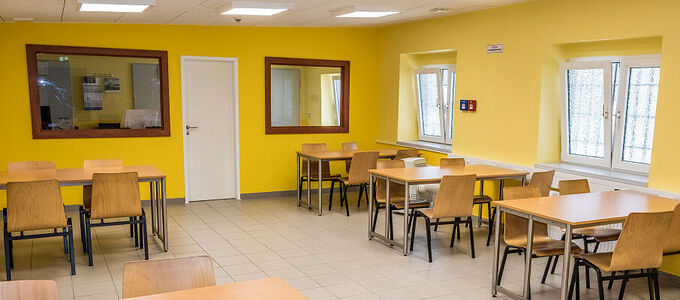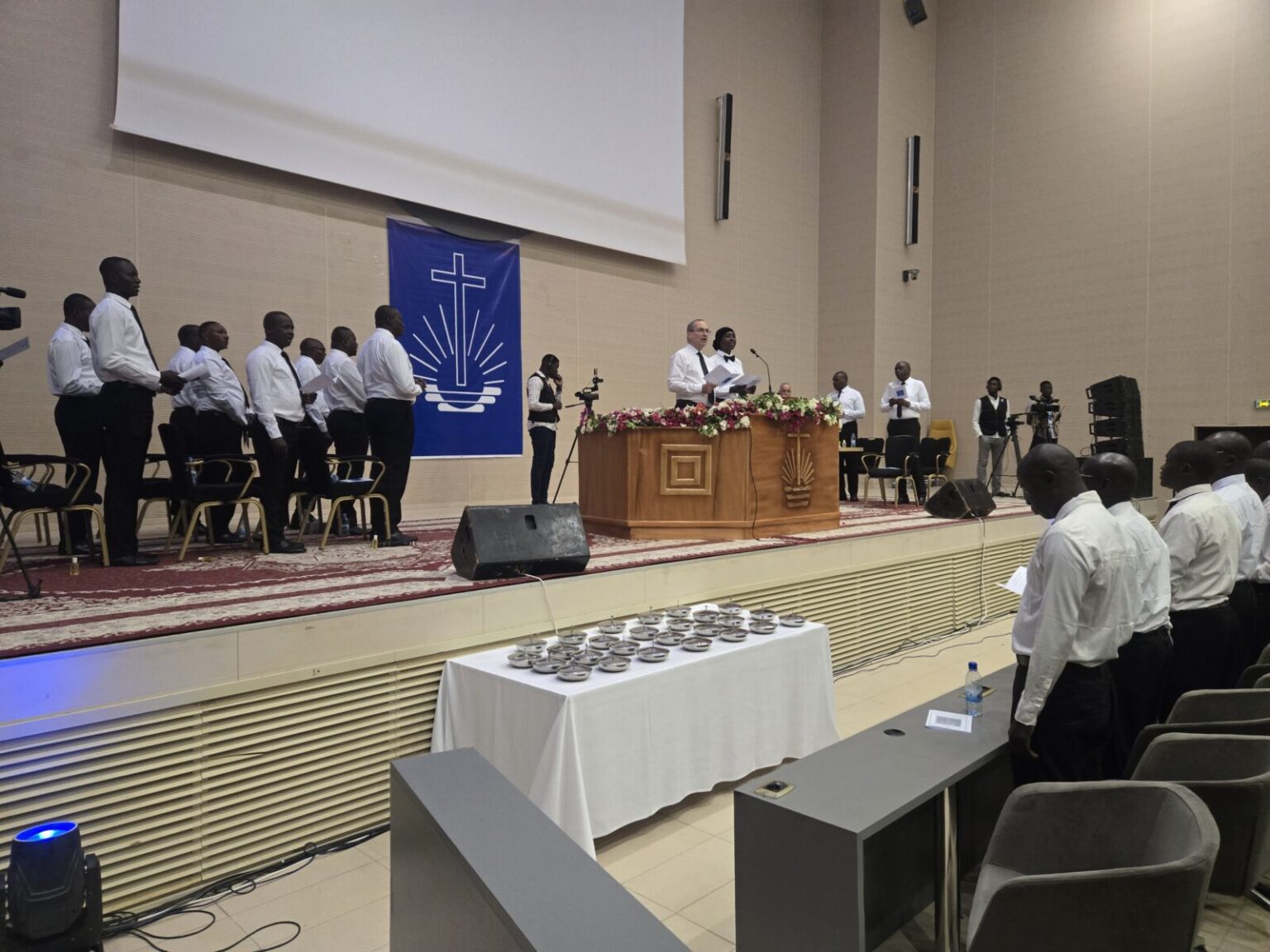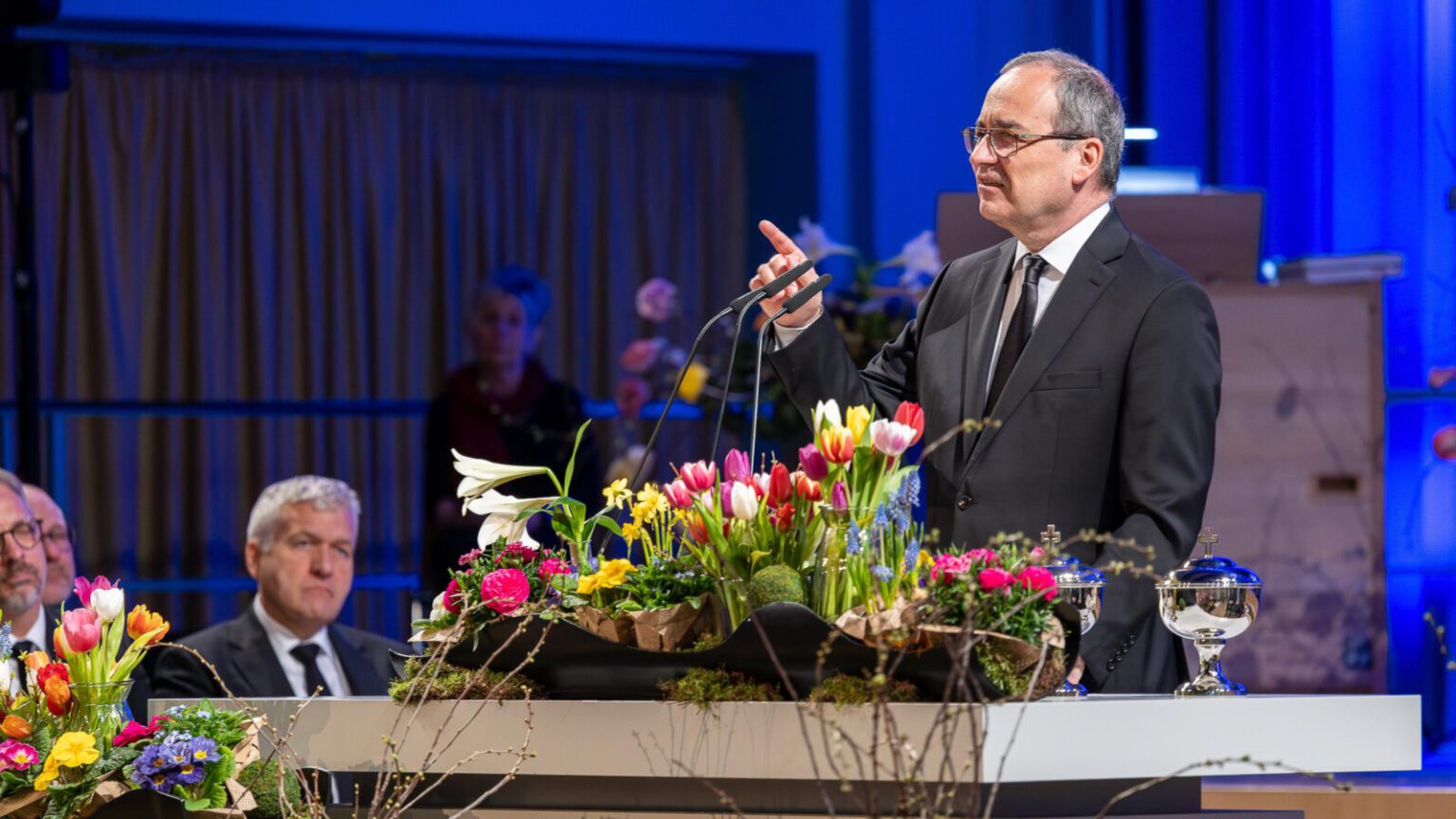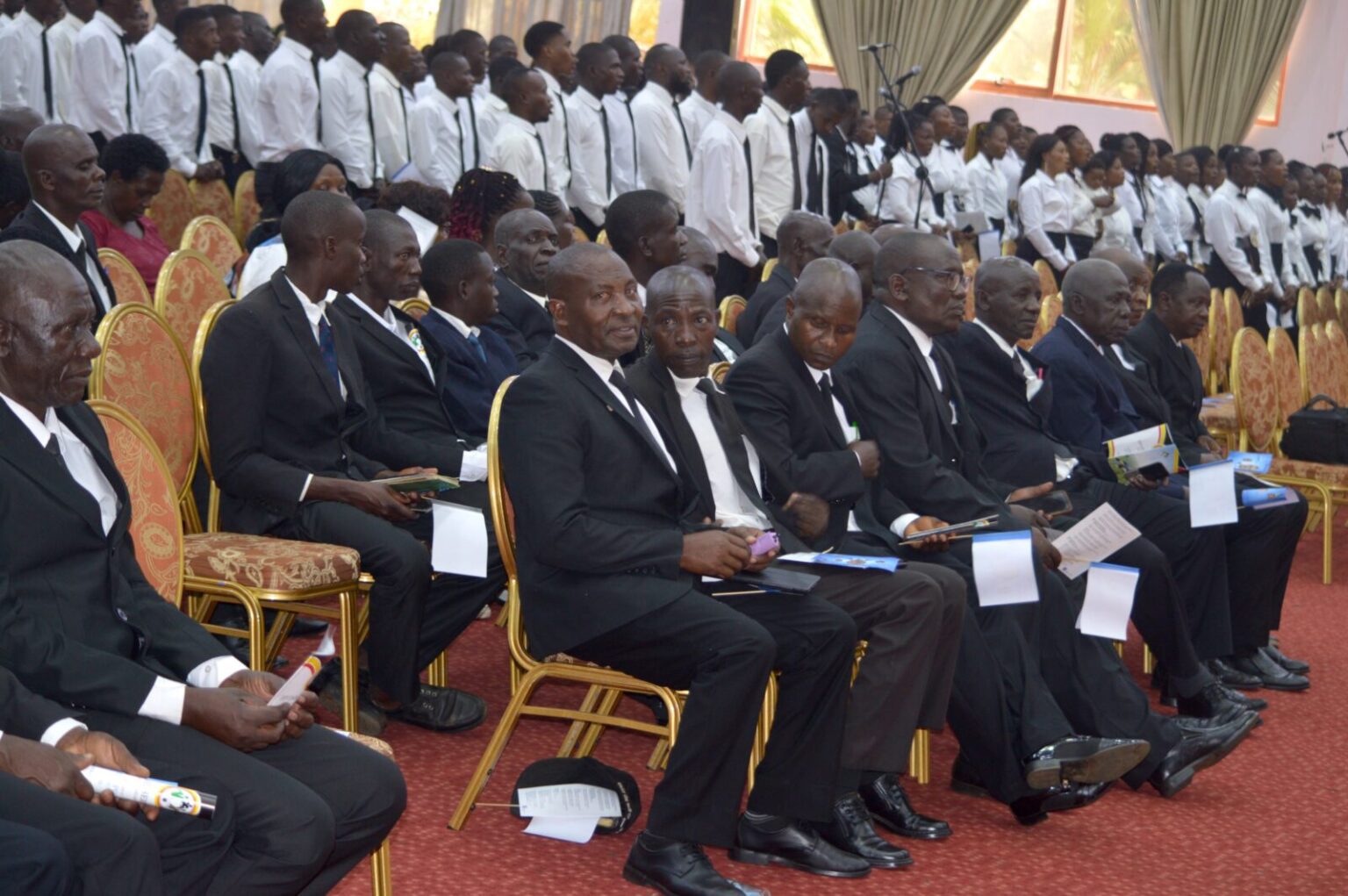
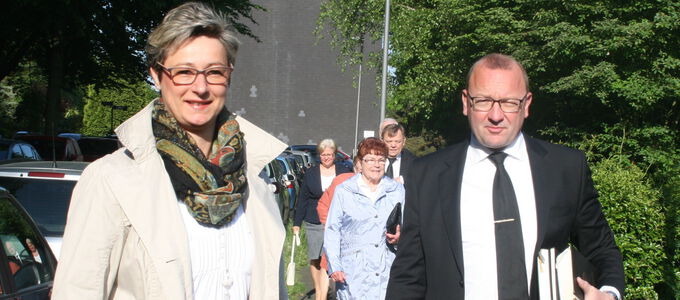
For many years, a Priest from the German district of Bochum provided for the faith-based needs of prisoners. He visited and looked after mostly New Apostolic inmates in a correctional facility in Bochum.
Priest Breitkreuz, you are responsible for the pastoral care of people serving a prison sentence in the area of the Regional Church of Western Germany. How did this come about?
In the district of Bochum, we have been doing pastoral care in prison for over twenty years. Seeing that ministers who are prepared to do pastoral work in prisons don’t grow on trees, the three ministers who were active in this work then asked me already 15 years ago whether I would be interested in supporting prisoners with their faith-based needs. The retired District Elder Albrecht then took me along to a divine service in the prison. It was the Sunday before a divine service for the departed.
What did it feel like when you first walked into a prison?
Even though we were a group of several brothers and sisters, I still felt apprehensive. Counting the choir, organist, conductor, officiant, and fellow ministers we were about 20 altogether. Once we were inside the building, the doors closed behind us. It felt oppressive and was exactly like you see it on television. It was a strange feeling.
So you decided to support the pastoral work in prisons. How are we to imagine this special form of pastoral care?
There are several pastoral-care groups in the prison, who are looked after by volunteers. These are typically people with special training, or pastors or lay people from different denominations. There are also Bible study groups. So there are many opportunities for the prisoners to receive spiritual support.
Our Church offered a discussion group on Tuesdays, for which the prisoners had to specifically register with the New Apostolic Church group. We talked about our faith and answered questions. The inmates who were interested could get a Bible from us. We also offered a divine service once a month.
What kind of crimes did the inmates in Bochum commit?
The inmates in Bochum had been convicted of bank robbery, murder, genocide, rape, child abuse, financial fraud, and many other serious crimes. There were also drug dealers. You encountered every form of crime imaginable.
This sounds challenging for an outsider! What difficulties are you confronted with in pastoral care?
The work is stressful. It differs from the pastoral care of Sister Smith or Brother Johnson in the congregation who come up to me and pour out their hearts: the level of communication is different and we agree on the fundamental values of our faith as opposed to facing a complete stranger with completely different values and beliefs. If the inmate is New Apostolic, things go relatively well. If the person is a Christian of another denomination, it could become a little more difficult. But if the person does not believe in God at all, it becomes very difficult.
Many of the inmates in this prison come from other cultures. You come across other mentalities, other interests, other beliefs, different attitudes to life, and a different sense of fundamental values. Many in the group would rather do something else than join our Christian group sessions. They don’t really want to talk about our faith and our future, about the implications of what God meant when He sent His Son on earth. These people can hardly understand this concept. Then it becomes difficult to have a conversation if you cannot even talk about the basics of the Christian faith with the inmates.
Is there anything particular that you experienced in your pastoral care work?
One thing that I remember was when we distributed the German Church magazine Unsere Familie there. At the time, there was an outcry in the New Apostolic Church when a prisoner in court held the Church magazine in front of his face to hide behind and keep reporters from getting a picture of him. A report was later published in the German Church magazine, explaining that we did pastoral care work in prisons. But this was before my time, about 20 years ago, I think.
Before we distributed any of the magazines in the prison, we always took out the inserts that contained the advertisements, which also featured personal ads, so-called lonely-hearts ads. I took my own copy of the magazine along one time and gave it to one of our brothers serving a prison sentence. I had forgotten to take out the advertisement section. After he had read the issue, he wrote to a sister who had placed an ad. This is how they got to know each other and they fell in love. When he was released from prison he approached me and asked: “Listen, Andreas, can you be our best man?” I said: “I’d love to.” So one Sunday I drove to Bonn with my wife for the wedding. I conducted the service and performed the wedding ceremony. That was very special.







